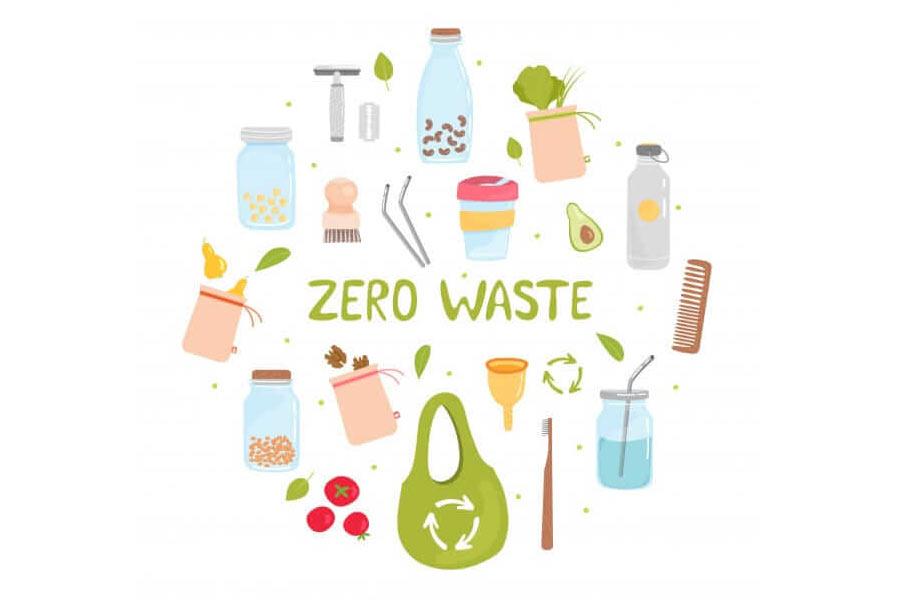
Some exciting news for the planet and Australia’s contribution to its wellbeing, in a budget designed around the Corona Virus it would have been easy to miss this huge win for the Australian environment. The Landmark Legislation will mean Australia must take full responsibility for all waste and will establish a national industry framework for recycling. Reforms to the regulation of product management will also encourage companies to take greater environmental responsibility for the products they manufacture and what happens to those products and materials at the end of their lives.
The Recycling and Waste Reduction Bill 2020 will bring an end to 645,000 tonnes of unprocessed plastic, paper, glass, and tyres that Australia has been shipping overseas every year. The bill will implement a complete waste export ban, ensuring that complete responsibility is taken for our waste.
The $190 million Recycling modernisation fund and the actions implemented towards the National waste policy action plan will create 10,000 new jobs over the course of a decade. This will mean a 32 per cent increase in jobs within the Australian waste and recycling sector. The introductory of this legislation will also mean the rise and investment into new technologies and new ideas to truly transform the recycling and reprocessing.
With this new legislation steaming head, we thought we would also shine a light on how our region can make its mark on becoming a more environmentally friendly community. Here are some of the scary facts about Australia’s lack of conscious care to our environment.
• Approximately 1/5th of bought food is thrown away – one in every five shopping bags!
When food rots in landfill it lets off methane, which is 25 times more potent than the CO2 produced by cars. If 1% of the population composted food scraps instead of throwing them in the bin, it would save 45 million kgs of CO2.
• Australia uses over 10 million plastic bags a day – this is causing HUGE problems in our beautiful oceans.
• 36,000KG of clothes are thrown out every hour. Which means 6,000KG of clothes are thrown out every 10 minutes. Even worse 75% of clothing purchased is thrown out within a year.
• 50,000 coffee cups are used every 30 minutes, meaning 1 Billion coffee cups are used in Australia every year, this is enough to circumnavigate the world 2.5 times. Most people don’t realise that coffee cups cant be recycled.
• 15 thousand bottles and cans are thrown away every single minute in Australia, meaning in just 1 day we could stretch them over 4,000km, which is the whole way across Australia.
• We’ve generated 6.3 billion tonnes of plastic. Only 9% has been recycled and 12% incinerated. 5 billion tonnes in landfill or polluting our environment. The biggest issue is that only 20% of Australia Households recycle plastic waste. Yet it only takes 1 minute for Australia households to produce 1 tonne of plastic waste.
What can we do to change things in our everyday life, so we can make an impact?
• Limit your use of single-use and disposable products and choose alternatives which can be used again.
• opt for products with minimal packaging where possible.
• Refuse plastic bags when you don’t need them. Keep reusable bags handy so you remember to take them to the shops. You can also use boxes or your own shopping trolley.
• When buying fruit and vegetables, put them into your trolley rather than plastic bags.
• Give unwanted clothes, household items, furniture or appliances to family or friends, or donate them to charities.
• If purchasing something, try to find it second-hand or buy items containing recycled content.
• Use washed takeaway containers as stackable containers for frozen food.
• Use glass jars to store food or other items or pass them on to friends or groups who make jams.
• Putting the wrong materials in your recycling bin may lead to large amounts of recyclable material being sent to landfill because it’s too difficult to separate them out. Make sure to be savvy on how you separate.
• Contact your local council to find out what e-waste recycling services they offer for larger electronic and electrical products.
• Check with your local council for safe ways to dispose of hazardous household waste as it can’t go in your normal garbage.
• Recycle unwanted plastic bags or soft plastics including pasta and rice bags, shopping bags, net bags, cling, and bubble wrap at most major recycling plants.
• Roll aluminium foil into a ball and place it in a recycling bin, even if it has food stuck to it.
• Compost your organic waste.
Electrical Contractor Licence
Licence Number: 88996
Expiry Date: 21 December 2025
Licensee: KAPEDO ENERGY PTY LTD
Licence Type: FULL ELECTRICAL CONTRACTOR LICENCE
Licence conditions or restrictions: NIL
Solahart pioneered the use of solar energy in Australia, beginning with a copper tank in 1953.
Now, we’re still leaders in solar and proudly serve Toowoomba & the Darling Downs with our solar products from the best brands in solar including Solahart, SolarEdge, Tesla, GoodWe and Enphase.
In addition to the strength and experience of Solahart, we’re a New Energy Tech Approved Seller.